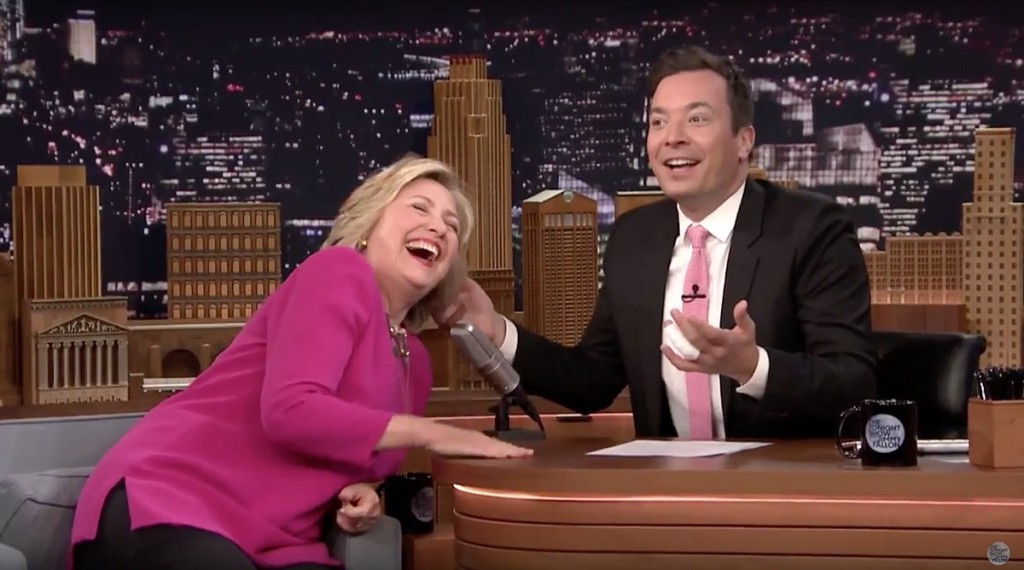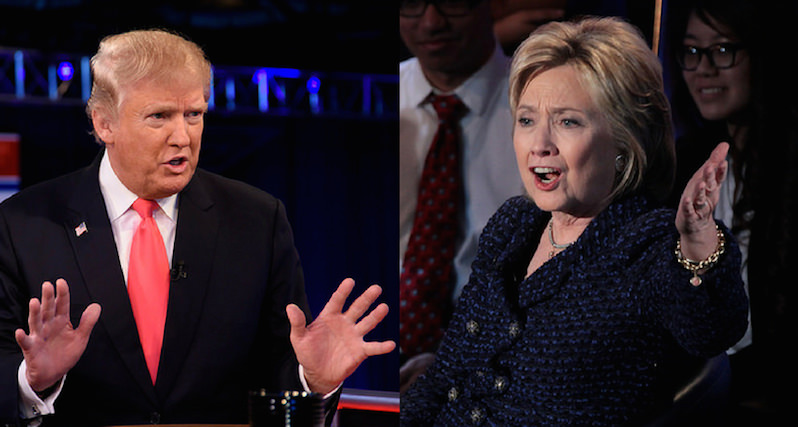
The 90-minute debate will be telecast live on all American broadcast and cable networks without any commercial breaks from 9 pm ET (Eastern Time in the USA, which corresponds to 6.30 on Tuesday morning in India). Transcript provided by NPR, Copyright NPR.A record number of 100 million viewers in the USA are expected to watch the first presidential debate between Hillary Clinton and Donald Trump. It's trying to shape the narrative afterwards. Those moments get chewed over relentlessly after the debate on cable news, and a group verdict gets formed about who won and who lost. It's going to be judged by moments and those moments, we've known in the past - where's the beef? There you go again. There's not that many undecided voters, but this is a very close race. Possibly as many as a hundred million people could be watching. These are not new faces whom we're seeing in this debate tonight. SIEGEL: There's always some question as to how important the debate is.

So he's getting ready to have - to say, if he falls short in the debate, it's the moderators fault, the media's fault. He called Lester Holt a Democrat when in fact Lester Holt, who is an experienced journalist, is a registered Republican. He said the moderators are in the tank for Clinton. Trump's campaign has said the system is rigged against him. They want the television networks to have the screen crawl point that out. They want the moderator to call Trump out if he says something that's not true. Clinton's campaign has been asking for fact-checking in real time. LIASSON: Both sides have been working the refs very hard. And how would you describe how each campaign has been trying to do that in recent days? SIEGEL: Mara, a lot of what's going on now is each side trying to frame the narrative around this debate. Does he appeal to suburban women and swing voters or just to his base? Or does she feel it's women and minorities that she has to talk to or those blue-collar Democrats who are flocking to Trump? So I'm watching to see what she decides is her priority - laying out the affirmative case for herself or undermining him.Īnd the other thing we'll see tonight by these candidates' answers is who they think their audience is. LIASSON: But that long list really lays out Clinton's basic dilemma. So in other words, her job is harder than doing everything Fred Astaire does only backwards and in heels. She has to undermine Trump and showcase an affirmative argument for herself all while appearing not too aggressive or any of the other things that reflect poorly on female candidates in debates. He - his job really is to reassure voters who don't want to vote for Clinton but are worried about his temperament - he has to show them that he's a plausible president.Ĭlinton, on the other hand, has to show voters that she's honest, likeable, trustworthy. But of course there is no teleprompter for a 90-minute, no-commercial-break debate. If there are two Trumps - the insult-comic Trump who dominated the primaries and then the teleprompter Trump who's been more disciplined and restrained recently - he needs to be the teleprompter Trump tonight. He needs to show a basic command of the facts. LIASSON: Donald Trump needs to appear presidential. What do the candidates need to accomplish?

SIEGEL: Let's talk about the campaign's objectives in this first debate tonight. Colorado is a place where Clinton had pulled advertising because her campaign was so confident about winning it. And new polls show that those two states are also tied.


Trump is even moving up in states he would need after you give him the big battleground states of Florida, Ohio, Nevada, North Carolina and Iowa.īecause Clinton has so many more paths to get to 270 electoral votes, Trump needs another state like Colorado or Pennsylvania. The polls have tightened mostly because Republicans are coalescing behind Trump and because Clinton is having trouble reassembling the Obama coalition of young people and minorities and women. SIEGEL: And heading into the big matchup tonight, where does the race between Trump and Clinton stand? NPR's Mara Liasson is at Hofstra University on New York's Long Island where the debate will take place. Hillary Clinton and Donald Trump will meet for their first head-on debate. The presidential campaign reaches one of its major junctures tonight.


 0 kommentar(er)
0 kommentar(er)
